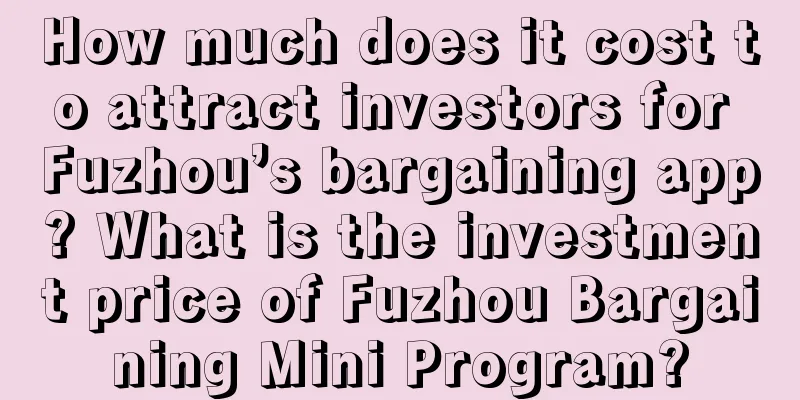Alipay has made its biggest change and invaded Dianping and WeChat's territory

|
The 12-year-old Alipay has ushered in one of the most revolutionary changes in its life. This highly offensive "face-changing" is bound to bring the competition in offline mobile payments to a higher level. On July 8, Alipay released the new version 9.0, adding two new page-level entrances: "Merchants" (collection of offline catering merchants) and "Friends" (social functions), replacing the old version of "Service Window" and "Explore". The O2O platform "Koubei" established by Alibaba and Ant Financial with a capital of 6 billion yuan not long ago will reach users through the new version of Alipay entrance. The launch of the new version of Alipay has invaded the traditional turf of Dianping and WeChat in the areas of eating, drinking, playing and O2O, as well as social networking . However, Alipay has denied its intention to become a chat tool, saying that it is accumulating user relationship chains and credit data in various scenarios, and has added functions such as IOUs, group accounts and group payments accordingly. In an interview with a reporter from China Business News, Fan Zhiming, president of Ant Financial Group's Payment Business Group, said that the "merchant" platform must first fully penetrate the catering industry, and then expand to various offline life services such as beauty and massage. Focus on catering O2O "It took Alipay eight years to transform from a tool into an application, and another two years to transform from an application into a payment platform. Next, it will be integrated into various real-life scenarios, becoming a one-stop scenario platform and a new lifestyle." Fan Zhiming's summary points out the "evolutionary flavor" of Alipay, and the path is payment tool-scenario platform-user relationship chain. One of the most obvious changes on the new Alipay homepage is the newly added "Merchant" portal, which brings together many offline catering merchants based on the current location of the LBS. After users click on the merchant and receive the coupon online (as low as 50% off), they can directly scan the code to pay after consumption in the store and use the discount amount at the same time. Currently, 130,000 offline catering and supermarket stores can accept Alipay payment. An O2O industry insider told our reporter that in the past, users would only think of whether to pay with Alipay after they had arrived at a restaurant or convenience store. Now, they collect coupons through Alipay before arriving at the store. In fact, the order of users' consumption path has been changed. According to information recently obtained by a reporter from China Business News from Ant Financial, in the O2O field, Ant Financial's internal adjustments currently have two directions. One is to take the lead in urban public services, large supermarkets, etc. with the Public Service Division; the other is to focus on the Local Life Division, integrating O2O resources such as Taodiandian transferred from Alibaba, and expanding catering and entertainment. Although the merchants on the Alipay platform are basically catering merchants with the help of Taodiandian's original resources, the Alipay scenario platform that wants to be similar to the "omnipotent Taobao " is not satisfied with the catering field. Fan Zhiming revealed to the reporter of "China Business Daily" that Alipay merchants must first thoroughly develop the catering field, and then slowly penetrate into other O2O fields such as beauty, leisure, massage, etc. In this regard, Chen Weiru, a professor at China Europe International Business School, believes that the expansion from catering and convenience store scenarios to taxis, cinemas, education, beauty, leisure and other scenarios is actually forming a positive cycle, that is, attracting more users through more scenarios, merchants providing more discounts to increase consumer usage frequency, and the increased frequency of use attracts more merchants to settle in, achieving a mutually growing cross-border network effect of the platform. Touching the nerves of Dianping and Tencent? A reporter from China Business News recently learned from a clerk at a Good Neighbor convenience store in Chaoyang District, Beijing that both WeChat Pay and Alipay Wallet can be used for payment by scanning codes, but overall more consumers actually use WeChat Pay to pay. After spending a certain amount on the same day, you can get a free bottle of sparkling mineral water by using WeChat Pay. Similar discounts are frequently offered by WeChat Pay in convenience stores in Beijing and other places. But the situation is different in the Jiangsu, Zhejiang and Shanghai regions, where Alipay is based. According to our reporter’s understanding from multiple sources, the proportion of users in Jiangsu and Zhejiang using Alipay to pay at convenience stores and supermarkets is higher than that in Beijing. The reporter previously observed at a FamilyMart convenience store in Wujiaochang, Shanghai, that during the morning rush hour, the proportion of people using Alipay to pay was no less than 30%. Going offline is what the two giants Alipay and WeChat are competing to do. Currently, Alipay has fully connected with supermarkets and fast food restaurants such as Carrefour, RT-Mart, and KFC. Alipay's service window and WeChat's service account both provide connection services between merchants and consumers. After the "Merchant" function is added to Alipay version 9.0, will the original service window function be weakened? Fan Zhiming responded that the service window will continue to be done, and the focus should be on displaying merchants well. It's just that it is now included in the "Friends" entrance, and merchants' information such as discounts are pushed to users in the form of dynamic messages. In addition to competing for offline merchants, Alipay has also made a high-profile invasion of Tencent's social territory. Many users who have experienced the new version of Alipay said that the interface style and functions of its "Friends" are very similar to WeChat. In addition to basic functions such as text, voice, group chat, red envelopes, and location, Alipay has also added a new "collection" function under the chat interface. For example, "dinner partners" who often eat together can create a new group chat in Alipay and generate a group payment code, so that they can automatically pay for each meal on an AA basis. In addition, new functions such as group funds (activity collection), loans (electronic IOUs, automatic transfer of repayments from the borrower's Alipay account upon maturity), and enhanced family accounts (assisting relatives who do not have Alipay accounts) are all accumulating user relationship chains based on transaction scenarios. In terms of social networking, Alipay will not become a daily chat tool like WeChat, and its approach is to focus on relationship attributes in various scenarios. The new version of Alipay is making efforts in the catering business sector, which is actually an offensive against Dianping, which is in the "Tencent camp". Dianping has just launched the "Flash Discount" function, which has changed the cumbersome payment method of "n group purchase coupons + cash to make up the difference". Users can pay online directly according to the preferential price calculated by the system. Recently, Dianping has signed a contract with Parkson Group to provide O2O services for shopping malls based on geographical locations. These areas have formed a confrontation with the expansion direction of Alipay. In this battle for offline business, the competitive territories between Tencent, Dianping and Alipay are increasingly overlapping and the situation is becoming more homogenized. Their respective user stickiness, usage habit cultivation, user experience, merchant resources, etc. will determine the direction of the future competition landscape. As a winner of Toutiao's Qingyun Plan and Baijiahao's Bai+ Plan, the 2019 Baidu Digital Author of the Year, the Baijiahao's Most Popular Author in the Technology Field, the 2019 Sogou Technology and Culture Author, and the 2021 Baijiahao Quarterly Influential Creator, he has won many awards, including the 2013 Sohu Best Industry Media Person, the 2015 China New Media Entrepreneurship Competition Beijing Third Place, the 2015 Guangmang Experience Award, the 2015 China New Media Entrepreneurship Competition Finals Third Place, and the 2018 Baidu Dynamic Annual Powerful Celebrity. |
<<: What the hell is the "Internet of Things" (64PPT)
>>: OECD: How shared cars change urban transportation by upgrading urban transportation systems
Recommend
Before a major epidemic, how should companies select topics for their new media operations?
The moment the hot topic came, it seemed that eve...
Why are you so tired even though you haven’t done anything?
Planning and production Source: CCTV.com Illustra...
Day doesn't understand the darkness of night! How does Android Q beat iOS 13?
Google I/O 2019 will be held at the Shoreline Amp...
Unfettered space exploration may be threatening the future of “space security”
【Mobile software: Bo Ke Yuan】As countries and pri...
Shenyang Mini Program Production Company, how much does it cost to produce an educational mini program?
How much is the quote for educational production ...
My face got rotten after using these "whitening methods"! The correct whitening method turns out to be like this →
With the development of the times Nowadays, the p...
Brand Marketing and Promotion丨What’s wrong with Durex’s Mother’s Day poster?
Ever since the poster copywriting failures of Dur...
In 2016, these six industries will be completely reshuffled
In 2015, everyone started their own business, and...
How dark is the darkest material in the world? It is said that even scientists cannot measure it
Recently, NASA has drawn the most accurate image ...
Momo's new growth point and monetization rules
In the past ten years, Momo has still not been ab...
What happened when a welder used melon seed shells to paint and sold them at a high price?
What happened when a welder used melon seed shell...
After eight years of hard work in the audio-visual industry: IPTV listing was criticized, and OTT has not yet made money
It is said that there was a conference in Chengdu...
How to retain people in Douyin live broadcast room? Tips for retaining viewers in Douyin live streaming
Do you encounter some problems when playing Douyi...
Adding propylene glycol, is toxic milk coming again?
Recently, the Market Supervision Bureau of Qingyu...









